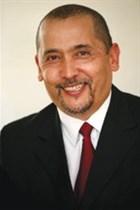Journalism is very different to just about any other profession, except in one respect. There is a belief that if you are good at your job - which is writing - then you will become a good something else, which inevitably means "manager".
And that was the thing that struck me first about becoming a news editor. No longer could I be one of the guys, because suddenly I had to manage everyone else.
Now writers are notoriously disorganised and can hardly manage themselves, let alone anybody else. Yet here I was expected to manage people, many of them older than me, without receiving any management training.
I had to sit on everybody and make sure that they meet their deadlines but, more importantly, make sure that they produce copy that would make the paper stand out from the rest. I had to become pedantic about commas and full stops and always look for an original angle for all the stories produced by the writers and reporters.
I also had to know what was in all the other papers, because quite often reporters would try to sell as their own, stories that they had seen in other papers.
The worst thing about being a news editor is that you don't write yourself anymore but end up rewriting everyone else's copy. After a few months, I longed to be sent back into the field to practise my first love: writing.
In many respects, I felt like a policeman who checked everyone's copy for mistakes, legal issues and missing angles. I saw the sloppiness of many of my colleagues and often had to throw stories back at reporters because they were inadequate.
But more than anything else, I realised that the role of a news editor is to understand the market that your newspaper is targeting. You need to understand your reader, his or her interests and know in what kind of content s/he would be interested.
You need to know instinctively which stories will sell and which won't. Often when you rewrite a reporter's copy, you need to have a headline in mind; one that will catch your reader's attention and persuade him or her to fork out a few rand to buy your paper.
One of the worst things is to wake up in the morning and discover that your main headline is the same as another paper's. Part of the role of a news editor is to make sure that the paper has a distinguishing feature on its front page every day.
News editors are the workhorses of the industry, but they need to work cleverly and with an understanding of the market that is much greater than anyone else, except possibly the Editor.
With hindsight, I should probably not have taken up a news editor role at such a young age, but often when you are confronted with the possibility of earning a few more rands, you grab it.
But the amazing thing is that I enjoyed my new role and grew into it over the years. Now that I have been in industry for what seems like an eternity, and have achieved a lot more than being a news editor, I enjoy nothing more than going back to my writing roots. However, having been on the other side of the fence, so to speak, I hope that I have become a much better writer in the process. Part of this is because I now make greater effort to understand my reader.
Ryland Fisher will be presenting a course on Strategic Thinking for Newsroom Leaders at the Institute for the Advancement of Journalism in September.
